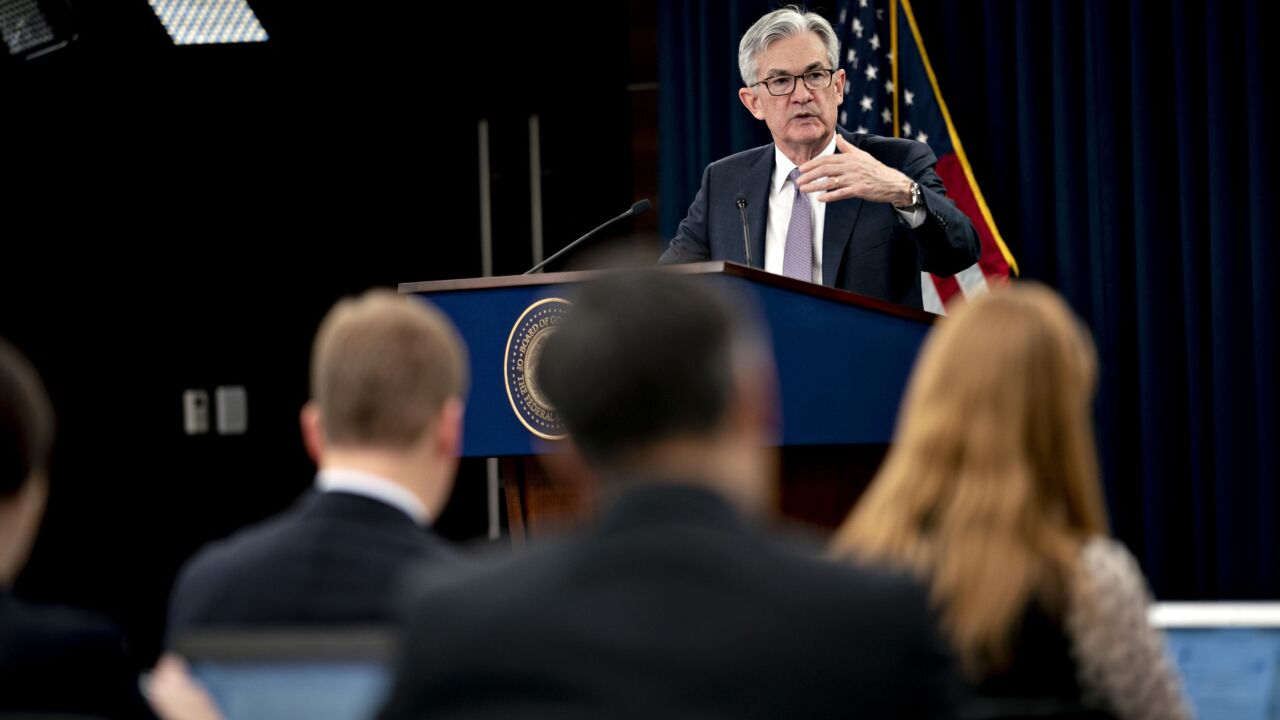
A legal fight between PayPal Holdings and the Consumer Financial Protection Bureau over digital wallets could upend the bureau’s authority to mandate consumer protection disclosures across the financial services industry.
The online payments giant sued the CFPB in 2019, claiming digital wallets should not be subject to the same fee disclosures as prepaid cards because they are inherently different products. A ruling in favor of PayPal could limit the CFPB's authority under the Dodd-Frank Act to mandate and prescribe consumer disclosures, experts said.
Brian Tate, president and CEO of the Innovative Payments Association, an industry trade group, called the PayPal lawsuit “one of the most important and least-covered stories in payments, depending on which way the court rules. ... This case has the potential to have a huge impact on the marketplace.”
The CFPB and PayPal declined to comment on the pending litigation.
The prepaid rule requires that providers of prepaid cards, mobile wallets and peer-to-peer payments deliver three disclosures before consumers can use the products to allow them to comparison-shop on fees and other factors. PayPal, Venmo, Alphabet's Google Pay, Apple Cash and Square’s Cash App are covered by the rule because the products store funds, according to the CFPB.
A district court judge sided with PayPal in December, ruling that the bureau in general does not have the authority to mandate fee disclosures.
Last month, the U.S. Court of Appeals for the D.C. Circuit heard oral arguments in which the CFPB claimed that Dodd-Frank gave it the authority to dictate the structure, form and content of disclosures used in connection with a wide range of financial products. Nearly all of the 19 consumer protection statutes that the CFPB enforces rely on disclosures as the primary form of consumer protection.
An appeals court decision in the case is expected by this summer.
PayPal sued the CFPB after the prepaid rule took effect, claiming the bureau was “arbitrary and capricious.” Adding digital wallets to the prepaid rule, PayPal alleged, violated the Administrative Procedure Act.
PayPal had worked closely with the CFPB during the rule-writing process. The payments giant sought to exclude digital wallets from the rule governing general-purpose reloadable prepaid cards because, it contended, the products are dissimilar. Prepaid cards are bought at retail stores and are supported by fees. PayPal does not charge customers fees to hold funds or use digital wallets to make purchases.
Even companies that do not charge consumer fees still have to list the fees as $0, according to the rule. PayPal has argued that the disclosures are misleading because consumers may believe it will ultimately charge fees and a short-form disclosure provided no way for the company to clarify the issue.
Also, because the CFPB prescribed the type of font size, color, typeface and words that companies must use on the short-form disclosure of fees to consumers, PayPal alleged that the CFPB violated the plain language of the prepaid rule’s underlying statute. The Electronic Fund Transfer Act says the CFPB can issue “model clauses for optional use by financial institutions” but it cannot mandate them.
In his December ruling, U.S. District Judge Robert J. Leon agreed with that interpretation of the EFTA. Moreover, he said, Dodd-Frank did not grant the CFPB any additional statutory authority to issue mandatory disclosure clauses. CFPB appealed.
Judge Leon also struck down a separate provision of the prepaid rule that would have required companies to wait 30 days before linking a prepaid account to a credit account. PayPal had argued that making consumers wait 30 days before linking a credit card or checking account to a digital wallet was not a disclosure requirement. However, the CFPB did not appeal that part of the ruling.
From a practical standpoint, if the appeals court sides with PayPal, the short-form disclosure for prepaid accounts would be thrown out, gutting an important provision of the CFPB’s prepaid rule that was eight years in the making.
But PayPal also argued that the CFPB is required by Dodd-Frank to consider a cost-benefit analysis to determine whether the costs of complying with the rule and the impact on consumers outweigh the benefits.
While the CFPB has broad authority under Dodd-Frank to issue rules and regulations, the appeals court could determine that other existing laws with more specific requirements could trump Dodd-Frank, experts said.
Most companies are reluctant to sue their regulator, but PayPal said it had exhausted its options in trying to get the CFPB to exclude digital wallets from the prepaid rule.
Last year, PayPal disclosed that the CFPB had launched an investigation into its mobile payment service Venmo for alleged unauthorized fund transfers and collections processes. PayPal also was one of six prominent technology companies along with Amazon, Apple, Alphabet’s Google, Facebook and Square that CFPB Director Rohit Chopra last year demanded




